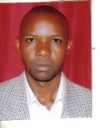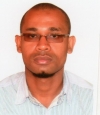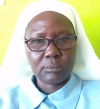Robert Kairania
ID:
|
Performance of the Asanteâ„¢ HIV-1 Rapid Recencyâ„¢ Assay in recent HIV infections detection and incidence estimation in a Ugandan setting using the Rakai Community Cohort Study
REFNo: HS534ES
Main aim: To determine the performance of the Asanté™ HIV-1 Rapid Recency™ assay in identification of HIV-1 recent infections and incidence estimation in a Ugandan setting with A and D predominant subtypes.
Specific aims
I. To evaluate the diagnostic performance of the Asanté™ HIV-1 Rapid Recency™ assay in identification of recent infections in a setting with A and D predominant subtypes.
II. To establish the false recency rate (FRR) of the Asanté™ HIV-1 Rapid Recency™ assay.
III. To determine factors associated with being misclassified as recent by the Asanté™ HIV-1 Rapid Recency™ assay.
IV. To compare HIV incidence estimated using the Asanté™ HIV-1 Rapid Recency™ assay from a cross-sectional survey with that observed longitudinally in an observational cohort in Rakai.
|
Uganda |
2020-03-16 |
2023-03-16 |
Medical and Health Sciences |
|
Non-degree Award |

|
Gerry McGivern
ID:
|
Strengthening health professional regulation in Kenya and Uganda
REFNo: SS336ES
The research aims to develop evidence about how health professional regulation is enacted and experienced by doctors and nurses in Ugandan and Kenyan and ways it might be improved.
|
UK |
2020-03-12 |
2023-03-12 |
Social Science and Humanities |
|
Non-degree Award |

|
Aala Abdelgadir
ID:
|
Mosque Mapping Survey
REFNo: SS385ES
Religious institutions play an important role in the daily lives of Ugandans, as in other African countries. Yet, we understand little about the influence of religious institutions on social and political outcomes. This project focuses on the sway of Muslim religious institutions in shaping the opinions and behaviors of congregants. Specifically, we will study how mosques communicate with congregants, what types of messages they deliver, and how messages shape the attitudes and behaviors of congregants.
The research objectives of this project are to:
• Examine variation in sermons, including topics, religious citations, and tone.
• Assess how mosque and imam characteristics influence the nature of sermons.
• Explore how sermons shape congregant religious, social, and political attitudes and behaviors.
|
USA |
2020-03-12 |
2023-03-12 |
Social Science and Humanities |
|
Degree Award |

|
Scholastic Ashaba
ID: UNCST-2023-R007613
|
Transition readiness among adolescents living with HIV in Uganda
REFNo: HS512ES
Aim 1: Use qualitative research to elaborate a conceptual model of transition readiness for perinatally-infected ALHIV in Mbarara, Uganda (n=up to 50 in-depth interviews).
Aim 2:Develop and validate a transition readiness scale for perinatally-infected ALHIV (n=340)
|
Uganda |
2020-03-12 |
2023-03-12 |
Medical and Health Sciences |
|
Non-degree Award |

|
Catherine Abbo
ID:
|
The Ugandan Early Childhood Phenoscreening Project
REFNo: HS544ES
1. To evaluate the psychometric properties of selected parent-report questionnaires among a community sample of infants and toddlers in Uganda.
2. To identify homogenous subgroups or behavioural risk profiles in a community sample of infants and toddlers
3. To determine the average age of autism spectrum disorder diagnosis in children attending mental health clinics in Mulago and Butabika hospitals
|
Uganda |
2020-03-12 |
2023-03-12 |
Medical and Health Sciences |
|
Non-degree Award |

|
Stephen Ojiambo Wandera
ID: UNCST-2021-R012147
|
Alcohol use, Intimate Partner Violence (IPV) & HIV Risk among Young People in fishing communities on the shores of Lake Victoria, Uganda
REFNo: SS421ES
Aim of the study
The aim of the study is to determine the factors associated with HIV risk among young people in fishing communities on the shores of Lake Victoria, in eastern Uganda.
Objectives of the study
1. To estimate the association between alcohol use and HIV risk among young people in in the fishing communities on the shores of Lake Victoria, Uganda
2. To determine the association between intimate partner violence (IPV) victimization (females) and perpetration (males) and HIV risk among young people in the fishing communities on the shores of Lake Victoria, Uganda
|
Uganda |
2020-03-12 |
2023-03-12 |
Social Science and Humanities |
|
Non-degree Award |

|
Alex Muganzi Muganga
ID: UNCST-2019-R000710
|
Project Evaluation Protocols for Kampala Region mechanism
REFNo: HS553ES
Evaluation Objective 1: To evaluate the targeted HTS models to improve earlier identification of HIV positive and negative individuals, and Linkage of PLHIV in community and facility sites in scale up districts and linkage and promotion of HIV prevention among HIV negative individuals.
Evaluation Objective 2: To evaluate innovative approaches that increase adherence, ART retention and viral load suppression among adult and pediatric HIV clients.
Evaluation objective 3: To determine if there is improved identification of TB infected individuals., effective scale up of comprehensive TB/HIV services at individual sites site, and progress towards reduction of TB burden among HIV/TB co-infected clients within the CDC supported regions and districts.
Evaluation objective 4. To evaluate innovative PMTCT & HEI approaches that increase identification of HIV positive and syphilis infected pregnant & breastfeeding women (PBFW), enhance immediate ART uptake, adherence and retention, viral load suppression and syphilis treatment among PBFW, reduce MTCT rates of HIV & Syphilis and ensure documentation of 18 month final outcome status for all HIV Exposed infants.
Evaluation objective 5: To evaluate innovative interventions that are designed to improve data quality and data utilization for program evidence-based decision making at facility and district level.
Evaluation objective 6 : To determine if there was increase access of comprehensive OVC services.
Evaluation objective 7: To determine if the strengthening of the existing laboratory network and its quality management systems increased the ART initiation and ART monitoring at facility and district level.
Evaluation Objective 8: To determine if the relationship between district level performance reviews and HR performance had an effect on district performance including access, coverage, retention and loss to follow up.
Evaluation objective 9: To determine if Kampala region mechanism approaches resulted in increased coverage with voluntary medical male circumcision.
|
Uganda |
2020-03-12 |
2023-03-12 |
Medical and Health Sciences |
|
Non-degree Award |

|
Anthony Makhoba
ID:
|
MODELING A BCG BIRTH DOSE VACCINATION PROGRAM FOR IMPROVED HEPATITIS B CONTROL IN UGANDA
REFNo: HS415ES
1. To determine the rate of BCG birth dose vaccination among newborns at St. Francis Hospital Nsambya and Mbarara Regional Referral Hospital.
2. To determine the time to BCG vaccination among newborns at St. Francis Hospital Nsambya and Mbarara Regional Referral Hospital
3. To establish reasons for missed/delayed BCG vaccination among newborns at St. Francis Hospital Nsambya and Mbarara Regional Referral Hospital and to propose means of improvement.
4. To document the human costs of birth dose vaccination i.e. the nurse time required to obtain maternal consent, to draw up and administer the vaccine and complete the immunization record.
|
Uganda |
2020-03-11 |
2023-03-11 |
Medical and Health Sciences |
|
Non-degree Award |

|
Sudi Mohamed Ali
ID:
|
Cervical Cancer: Late presentation and associated factors at Mbarara Regional Referral Hospital.
REFNo: HS485ES
1. To determine the proportion of women with cervical cancer that presents late at Mbarara Regional Referral Hospital.
2. To determine the factors associated with late presentation among women with cervical cancer at Mbarara Regional Referral Hospital.
3. To explore the factors associated with health care seeking from onset of symptoms to diagnosis among women with cervical cancer at Mbarara Regional Referral Hospital.
|
Kenya |
2020-03-11 |
2023-03-11 |
Medical and Health Sciences |
|
Degree Award |

|
Richard Muhumuza
ID:
|
INTEGRATED PREVALENCE MAPPING OF SCHISTOSOMIASIS AND SOIL TRANSMITTED HELMINTHIASIS AMONG COMMUNITIES IN MAYUGE DISTRICT: IMPLICATIONS FOR NTD ELIMINATION PROJECT 2019-2021
REFNo: HS434ES
2. Study objectives
2.1 General objective/Goal
The establish the prevalence of Schistosomiasis and STH infections among school going children and surrounding communities in Mayuge district
Specific objectives
1. To build capacity of Laboratory assistants and technicians on sample (Stool) collection and microscopic analysis
2.To collect sample (Stool) collect from the selected schools
3. To conduct Microscopic analysis for collected samples
|
Uganda |
2020-03-09 |
2023-03-09 |
Medical and Health Sciences |
|
Non-degree Award |

|
Mohammed Lamorde
ID: UNCST-2019-R001293
|
Assessment of Public Knowledge, Attitudes, and Practices Related to Ebola Virus Disease Prevention and Treatment in Uganda
REFNo: HS531ES
1. Measure district-level estimates in six districts in Uganda of the public’s knowledge, beliefs, attitudes, and practices related to Ebola Virus Disease (EVD) risks due to the ongoing and widespread EVD outbreak in DRC; and
2. Identify socio-behavioral and health system barriers that may hinder the containment of an EVD outbreak in Uganda given the complex socio-political and security context of the protracted outbreak in neighboring DRC.
|
Nigeria |
2020-03-09 |
2023-03-09 |
Medical and Health Sciences |
|
Non-degree Award |

|
REBECCA NANTANDA
ID: UNCST-2019-R001533
|
Improving neonatal outcomes through early detection and management of hypoxaemia: The role of routine pulse oximetry
REFNo: HS132ES
1.To evaluate the effect of routine pulse oximetry on neonatal outcomes in the first 24 hours of life.
2.To determine the utility of pulse oximetry compared to clinical signs in detection of hypoxaemia in neonates with possible serious bacterial infections at lower level facilities
3.To assess the feasibility and acceptability of routine pulse oximetry by healthcare workers and caretakers of newborn babies.
4.To determine the cost-effectiveness of routine pulse oximetry in identifying neonates with hypoxaemia.
5.To describe the maternal factors that predict hypoxaemia in the newborn babies
|
Uganda |
2020-03-06 |
2023-03-06 |
Medical and Health Sciences |
|
Non-degree Award |

|
Moses Joloba Lutaakome
ID: UNCST-2022-R011558
|
Advancing Tissue and Organ Biobanking in Uganda
REFNo: HS572ES
General objective: To establish a tissue and organ biobank at Makerere University to serve as a catalyst for research in organ collection, biobanking and transplantation in Uganda.
Specific Objective :
1. To train personnel and develop standard operating procedures for collection, processing and storage of human ova, sperm and umbilical cord blood.
2. To collect, process and store human ova, sperms and umbilical cord blood.
3. To develop a publicly accessible catalog of HLA typed viable human tissue and organs.
4. To explore the ethical, legal and societal issues (ELSI) in human tissue and organ biobanking
|
Uganda |
2020-03-03 |
2023-03-03 |
Medical and Health Sciences |
|
Non-degree Award |

|
ROSE ATIM
ID:
|
Law, Culture and Reality: Women Navigating Post Conflict Marital Relations in Northern Uganda
REFNo: SS423ES
1. Investigate the legal implication of the institution of marriage on women born in internally displaced peoples camps and victims of sexual violence of the LRA conflict;
2. Interrogate if cohabitation as an alternative to ‘legal’ marriage is becoming institutionalized among women born in internally displaced peoples camps and victims of sexual violence of the LRA Conflict;
3. Analyse the effectiveness of legal and informal marital protection mechanisms in a post conflict society;
4. Interrogate the future of the law in customary marital unions.
|
Uganda |
2020-03-03 |
2023-03-03 |
Social Science and Humanities |
|
Degree Award |

|
Jackson Mukonzo
ID: UNCST-2021-R013916
|
SAFETY AND EFFICAY OF DOLUTEGRAVIR AND EFV 400 FOR PREGNANT AND BREAST FEEDING WOMEN; A RANDOMISED NON INFERIORITY CLINICAL TRIAL
ACRONYM: PREGART
REFNo: HS515ES
PRIMARY OBJECTIVE; to identify safer and more effective ART regimen for pregnant and breast feeding women by comparing three alternative first line ART regimens for their safety and efficacy using randomized clinical trial.
SECONDARY OBJECTIVE; To provide evidence based recommendations for safe and effective first line ART regimens for prevention of mothers to child transmission and treatment of HIV infected pregnant and breast feeding women living in resource limited setting.
|
Uganda |
2020-02-25 |
2023-02-25 |
Medical and Health Sciences |
|
Non-degree Award |

|
Coleen Sabatini
ID: UNCST-2019-R001321
|
Outcomes Following Surgical Release of Gluteal Fibrosis in
Children of Eastern Uganda
REFNo: HS561ES
This study is a longitudinal case series to evaluate if surgical release of gluteal fibrosis in Ugandan children has a sustained benefit. We will examine the two-year outcomes after surgical release of gluteal fibrosis in children undergoing surgical intervention for gluteal fibrosis.
|
USA |
2020-02-25 |
2023-02-25 |
Medical and Health Sciences |
|
Non-degree Award |

|
NAASSON TUYIRINGIRE
ID:
|
Metabolomics Approaches to Elucidate the Mechanisms of Action of Antimycobacterial Medicinal Plants
REFNo: HS422ES
The main objective is to elucidate the mechanisms of action of antimycobacterial medicinal plants using metabolomics. The specific objectives are:
1. To determine the metabolome of M.tb subjected to medicinal plant extracts with antimycobacterial activity as compared to control culture
2. To optimize an analytical metabolomics workflow to facilitate reproducible measurements of bacterial metabolome with extract treatment or without the treatment
3. To elucidate the metabolic pathways affected by plant extracts
4. To identify the macromolecule targets of plant extracts
|
Rwanda |
2020-02-21 |
2023-02-21 |
Medical and Health Sciences |
|
Degree Award |

|
Jean Damascene Niyonsenga
ID:
|
Exercise and well-being: NCD risks and constraints to Physical Activity and sports participation among Ugandan rural and urban secondary school students
REFNo: HS490ES
1. To examine the correlation between NCDs risk factors and level of physical activity/sports participation, type of eaten food, and lung function among both rural and urban secondary school students in Mbarara, uganda
2. To establish constraints to PA/sports participation of secondary school students in rural and urban schools in Mbarara, Uganda.
3. To examine the relationship between internal motivation and external support for PA/sports participation for secondary school students in rural and urban schools of Mbarara, Uganda.
4. To determine the commonest sustained injuries and to establish the proportion attributable to PA/sports among rural and urban secondary school students in Mbarara, Uganda.
5. To compare constraints and injuries identified by secondary school students from rural and urban schools in Mbarara, Uganda.
|
Rwanda |
2020-02-21 |
2023-02-21 |
Medical and Health Sciences |
|
Non-degree Award |

|
Robert Kairania
ID:
|
Exploration of psychological distress and cross-cultural adaptation of a mental health measure for people living with HIV in Rakai, Uganda
REFNo: SS408ES
Aim 1: To characterize local manifestations of psychological distress among people living with HIV in rural communities in Rakai, Uganda
Aim 2: To identify and cross-culturally adapt appropriate mental health measurement instruments based on findings from Aim 1.
Aim 3: To validate the adapted mental health measurement instrument within the rural Rakai population.
|
Uganda |
2020-02-21 |
2023-02-21 |
Social Science and Humanities |
|
Non-degree Award |

|
Vincentina Achora
ID:
|
Postpartum haemorrhage in Northern Uganda: Community perspectives; burden and associated factors; Health Facilities preparedness for its management; and outcomes
REFNo: HS518ES
1. To explore the community perspectives of PPH in Lira district.
2. To assess the level of health facilities preparedness for management of labour, delivery and postnatal care in prevention of PPH in Lira district.
3. To describe the burden and factors associated with PPH among mothers delivering in Lira district and Lacor Referral hospital.
4. To describe the factors associated with outcomes of PPH among mothers delivering in Lira district and Lacor Referral hospital.
|
Uganda |
2020-02-21 |
2023-02-21 |
Medical and Health Sciences |
|
Degree Award |

|
| View |
|
Sort By: |
|
|
|
| |
|